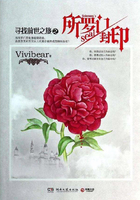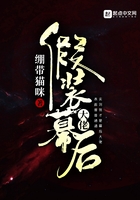Nekhludoff got down and, following the cart, again passed the sentinel and entered the gate of the police station. By this time the firemen had finished washing the cart, and a tall, bony man, the chief of the fire brigade, with a coloured band round his cap, stood in their place, and, with his hands in his pockets, was severely looking at a fat-necked, well-fed, bay stallion that was being led up and down before him by a fireman. The stallion was lame on one of his fore feet, and the chief of the firemen was angrily saying something to a veterinary who stood by.
The police officer was also present. When he saw the cart he went up to the convoy soldier.
"Where did you bring him from?" he asked, shaking his head disapprovingly.
"From the Gorbatovskaya," answered the policeman.
"A prisoner?" asked the chief of the fire brigade.
"Yes. It's the second to-day."
"Well, I must say they've got some queer arrangements. Though of course it's a broiling day," said the chief of the fire brigade; then, turning to the fireman who was leading the lame stallion, he shouted: "Put him into the corner stall. And as to you, you hound, I'll teach you how to cripple horses which are worth more than you are, you scoundrel."
The dead man was taken from the cart by the policemen just in the same way as the first had been, and carried upstairs into the hospital. Nekhludoff followed them as if he were hypnotised.
"What do you want?" asked one of the policemen. But Nekhludoff did not answer, and followed where the body was being carried.
The madman, sitting on a bed, was smoking greedily the cigarette Nekhludoff had given him.
"Ah, you've come back," he said, and laughed. When he saw the body he made a face, and said, "Again! I am sick of it. I am not a boy, am I, eh?" and he turned to Nekhludoff with a questioning smile.
Nekhludoff was looking at the dead man, whose face, which had been hidden by his cap, was now visible. This convict was as handsome in face and body as the other was hideous. He was a man in the full bloom of life. Notwithstanding that he was disfigured by the half of his head being shaved, the straight, rather low forehead, raised a bit over the black, lifeless eyes, was very fine, and so was the nose above the thin, black moustaches. There was a smile on the lips that were already growing blue, a small beard outlined the lower part of the face, and on the shaved side of the head a firm, well-shaped car was visible.
One could see what possibilities of a higher life had been destroyed in this man. The fine bones of his hands and shackled feet, the strong muscles of all his well-proportioned limbs, showed what a beautiful, strong, agile human animal this had been. As an animal merely he had been a far more perfect one of his kind than the bay stallion, about the laming of which the fireman was so angry.
Yet he had been done to death, and no one was sorry for him as a man, nor was any one sorry that so fine a working animal had perished. The only feeling evinced was that of annoyance because of the bother caused by the necessity of getting this body, threatening putrefaction, out of the way. The doctor and his assistant entered the hospital, accompanied by the inspector of the police station. The doctor was a thick-set man, dressed in pongee silk coat and trousers of the same material, closely fitting his muscular thighs. The inspector was a little fat fellow, with a red face, round as a ball, which he made still broader by a habit he had of filling his cheeks with air, and slowly letting it out again. The doctor sat down on the bed by the side of the dead man, and touched the hands in the same way as his assistant had done, put his ear to the heart, rose, and pulled his trousers straight. "Could not be more dead," he said.
The inspector filled his mouth with air and slowly blew it out again.
"Which prison is he from?" he asked the convoy soldier.
The soldier told him, and reminded him of the chains on the dead man's feet.
"I'll have them taken off; we have got a smith about, the Lord be thanked," said the inspector, and blew up his cheeks again; he went towards the door, slowly letting out the air.
"Why has this happened?" Nekhludoff asked the doctor.
The doctor looked at him through his spectacles.
"Why has what happened? Why they die of sunstroke, you mean? This is why: They sit all through the winter without exercise and without light, and suddenly they are taken out into the sunshine, and on a day like this, and they march in a crowd so that they get no air, and sunstroke is the result."
"Then why are they sent out?"
"Oh, as to that, go and ask those who send them. But may I ask who are you?
"I am a stranger."
"Ah, well, good-afternoon; I have no time." The doctor was vexed; he gave his trousers a downward pull, and went towards the beds of the sick.
"Well, how are you getting on?" he asked the pale man with the crooked mouth and bandaged neck.
Meanwhile the madman sat on a bed, and having finished his cigarette, kept spitting in the direction of the doctor.
Nekhludoff went down into the yard and out of the gate past the firemen's horses and the hens and the sentinel in his brass helmet, and got into the trap, the driver of which had again fallen asleep.















